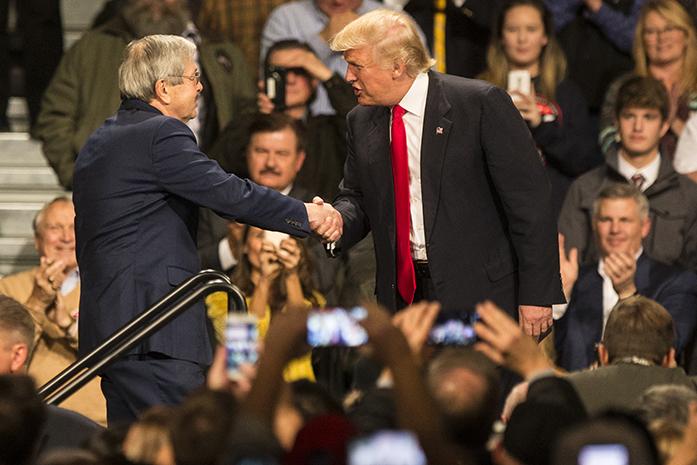The United States is less than a week into Donald Trump’s presidency, and if it is at all possible, the country is more divided now than it was prior to the inauguration. But the narrative of Trump’s divisive America may be fading slightly into the distance — at an impossibly slow pace, mind you — because the narrative quickly becoming more prominent is how he handles his administration and running the country.
The Trump administration has already made it clear that the facts will be malleable in its post-truth world based on what makes Trump look best. But Trump also made it clear last week that he believes approval ratings to be rigged. Of course, this logic is consistent with Trump’s modus operandi, because the approval ratings were less than stellar. In fact, Trump’s approval rating prior to the inauguration is the lowest of any president-elect since Eisenhower, according to The Hill.
When news of the low rating broke, Trump took to Twitter — nothing unusual — saying, “The same people who did the phony election polls, and were so wrong, are now doing approval rating polls. They are rigged just like before.”
As Vox has pointed out, Trump ignoring (or claiming that he’s ignoring) the results of approval ratings is scarier than it first seems. Public opinion has long been an important mechanism to constrain and change the stances and goals of the president. And because the president is often regulated, in a way, by public opinion, other world leaders and members of Congress have not had to step in to sway the president down the correct path.
But as Vox also pointed out before the inauguration, “Congress won’t do it; Paul Ryan and Mitch McConnell have made it clear they’re not interested in pressuring the president-elect on his sundry conflicts of interest or in launching investigations into Russian involvement in the election.”
This is shameful.
Many leading Republicans (including Ryan, John McCain, and Mitt Romney) have expressed their disapproval of Trump’s actions a number of times. Whether it be grossly misogynistic and sexually abusive comments, outright bigotry, or xenophobia manifesting itself in hateful policy proposals, several Republicans have spoken out against Trump. Yet most have decided to support him.
It’s time for Republican leaders to put their money where their mouths are for the sake of the country. It’s one thing for Republican politicians to express their distaste for some of Trump’s opinions; it’s another entirely to be willing to stand up to injustice and to legitimately help guide the president in the right direction.
Trump may not listen to these prominent Republicans, but that should not stop them from at least trying to play the role of approval ratings if those ratings won’t. The first hope of the Daily Iowan Editorial Board is that Trump would be responsive to low approval ratings — as most presidents before him have been — because this is a true mark of a democracy. The United States, as a representative democracy, relies on the voices of politicians to represent the voices of the public.
If Trump is not going to be responsive to approval ratings — and, therefore, the opinions of the public — it will be the job of his top advisers and other officials to make sure the president does what’s best for American interests, not just his own.



